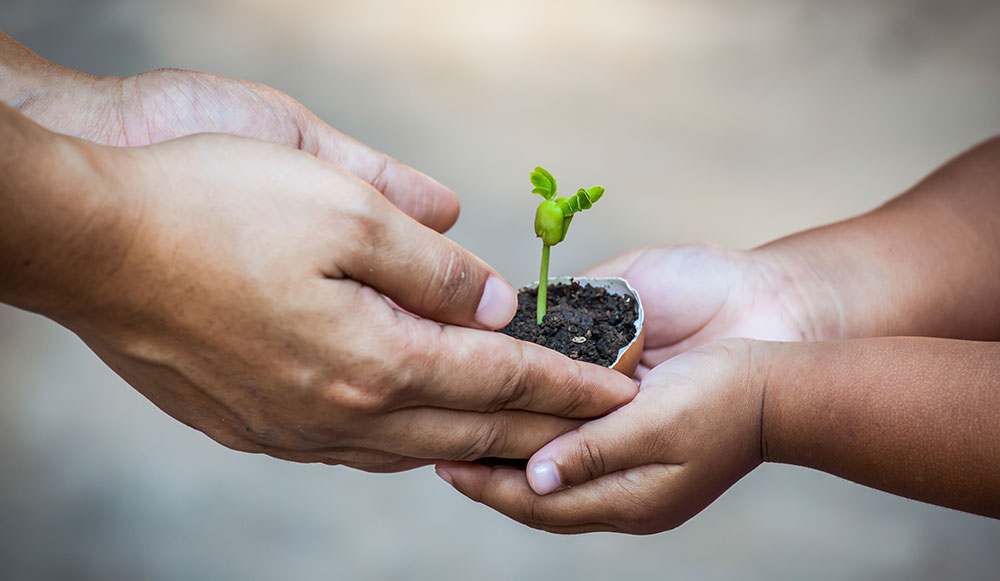Recycle, turn off the lights when leaving a room, take care of the plants,… the sooner they learn good habits, the better. Any occasion is good to teach our children ecological measures. There are many gestures to adopt on a day to day basis that help preserve our planet. In order for future generations to acquire these good habits, it is best to learn them as a child. But sometimes it is not easy for children to become aware of the need to take care of the environment. So, we present some ideas to sensitize the youngest of the house:
- Lead by example. Everybody knows that children, especially the youngest, learn by repetition. So, if you want your child to become aware of the need to take care of our planet, it is essential that they see these small ecological gestures in their parents. This will help them internalize such behaviors and become second nature: reusing supermarket bags, consuming local and seasonal products, close the tap when it is not being used, taking a shower instead of a bath, etc.
- Learn with fun. There is no better way to learn something than by enjoying and have fun with it. This is equally applicable to everything that needs to be learned about ecology. For example, children will learn much better things that are recycled if we make the moment of recycling something fun: guess in which trash bin you have to put the yogurt container, the glass bottle of a juice, the wrapper of a candy …, or imagine new uses for the paper and cardboard we throw away.
- Explain the reasons behind things. Children are hungry for knowledge, and they have phases in which they spend all their time asking about things are around them. It is the ideal time to satisfy their curiosity and take the opportunity to explain that natural resources can be renewable, such as wind, sun, water, or forests, and non-renewable, such as coal or oil, the difference between some and others, how to take advantage of them, make a rational use of them, etc. Where does tap water come from? How is paper made? There are thousands of questions that children ask each day, whose answers will help them create their ecological conscience.
- Observe nature. Why not take advantage of weekends to take a family walk in the countryside or parks instead of shutting up in shopping centers or at home? It is the ideal time to have your child discover nature and so you can take the opportunity to explain what characterizes the seasons, how to know the age of a tree, why the leaves fall… You can also say the animals you can find in the forest and make your child see the need for green spaces where animals can live. In the field, you can also perform many activities that awaken your ecological curiosity, such as collecting leaves to stick them in a notebook with the name of each plant or tree, or observe with the magnifying glass the small insects that live on the earth.
- Carry out experiments. How better to understand nature than to conduct experiments? If, for example, you wonder how ice is formed, take the opportunity to make an ice cube and explain the three states of the water and the water cycle. Or, if you ask how the plants grow, he himself can plant different seeds so that he can see how they grow and what they need to grow. All these experiments will allow you to discover the functioning of everything that surrounds you.

